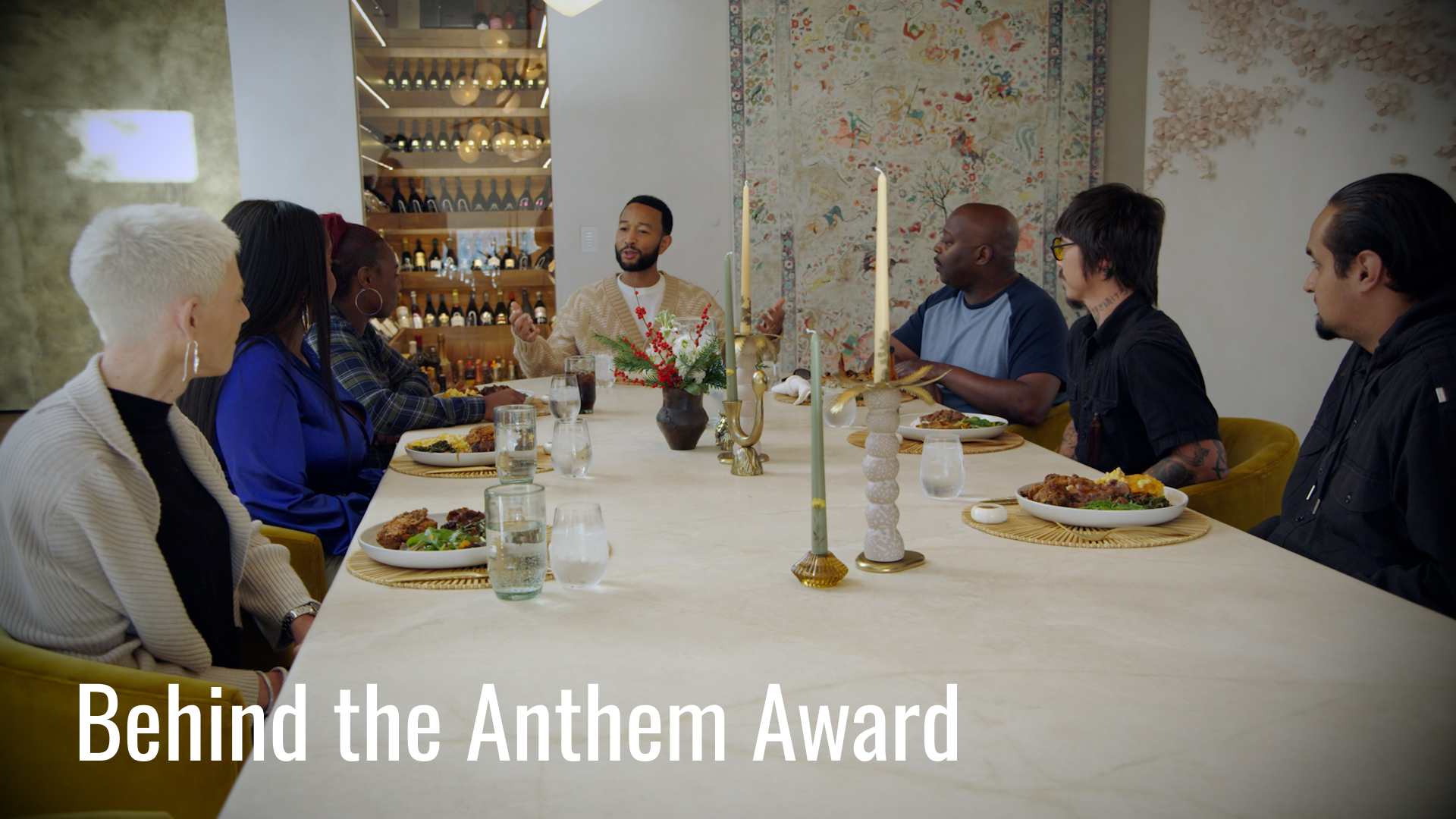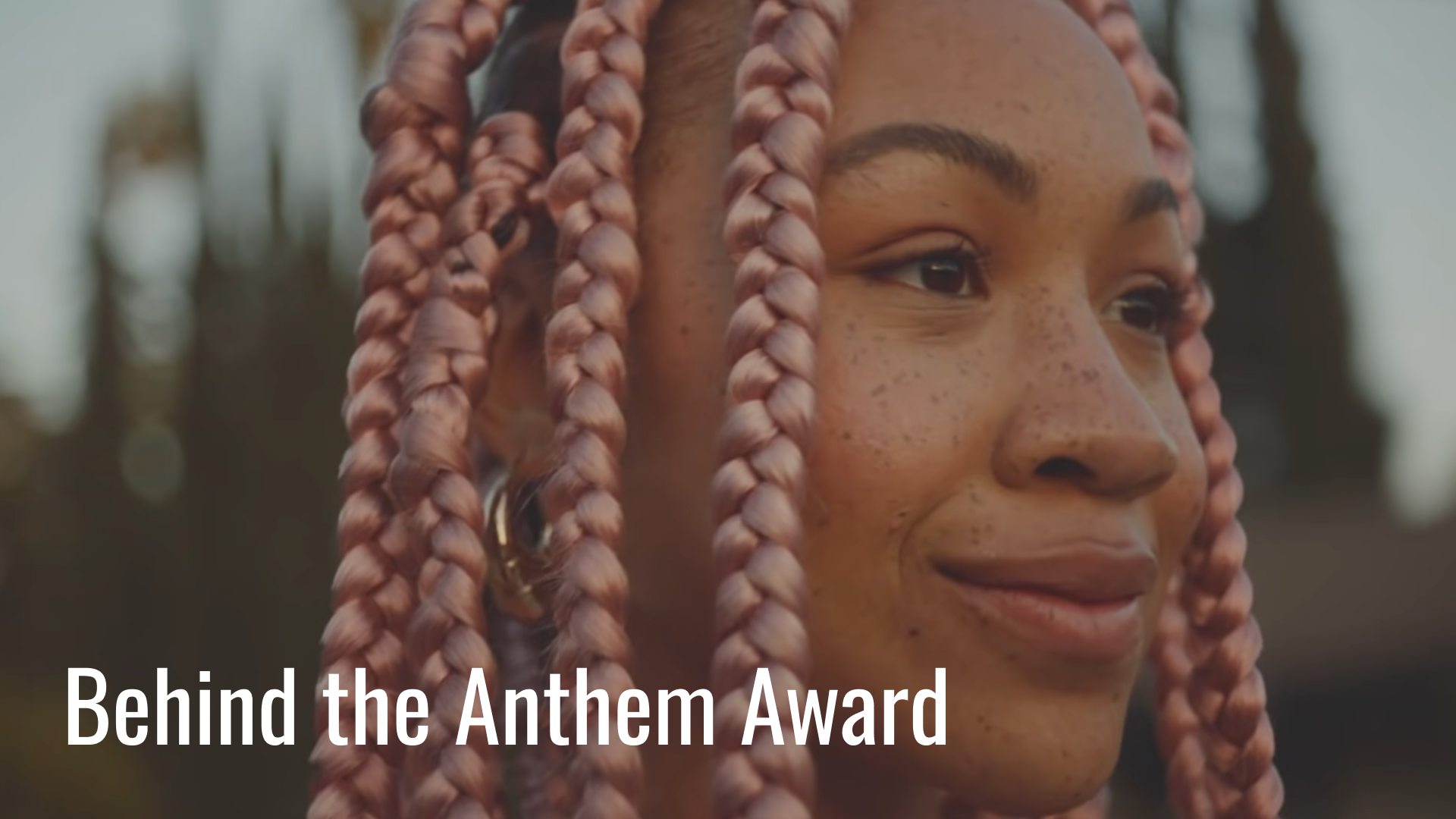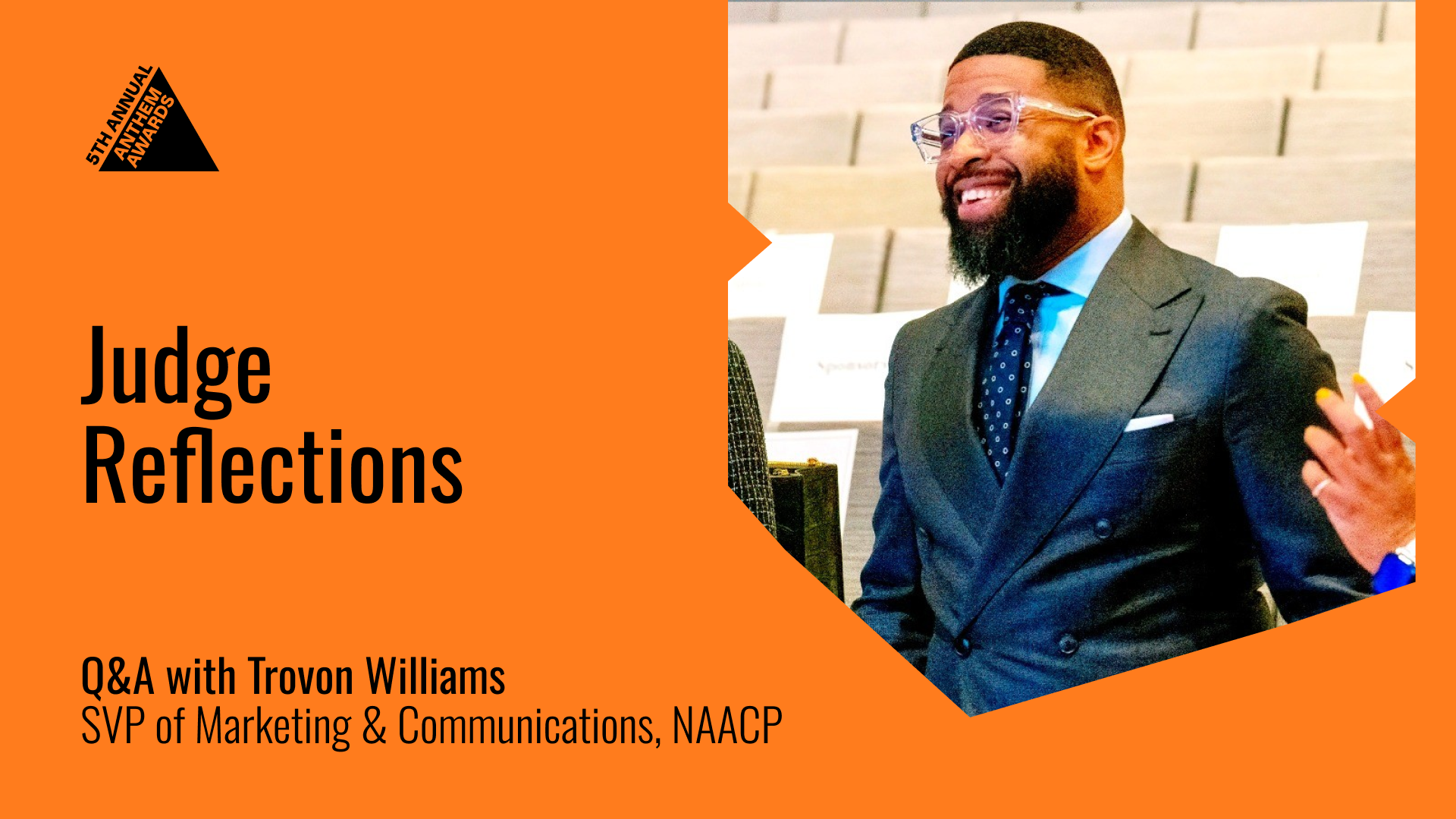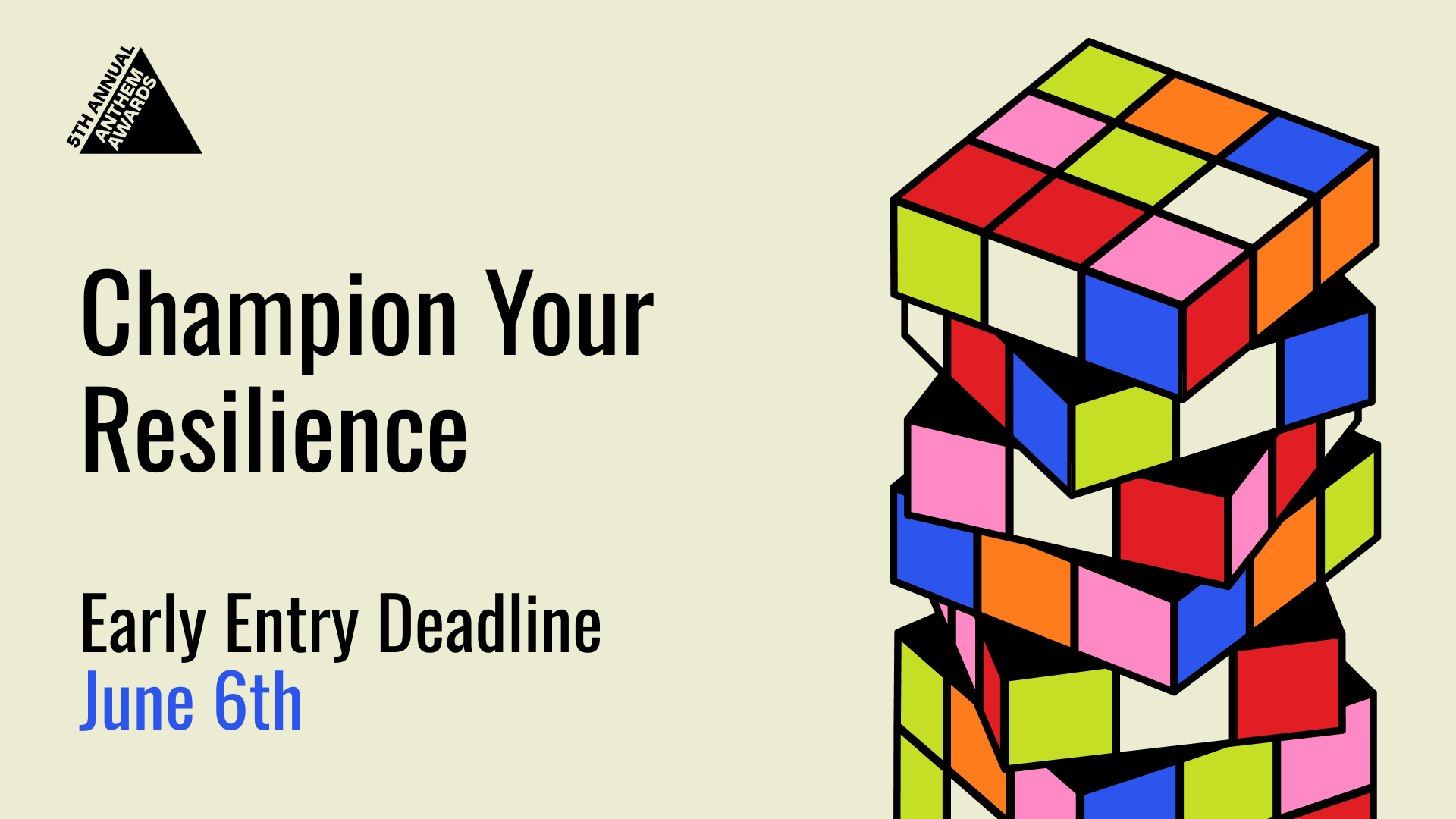Blending Art with Social Impact Can Expand Your Reach
Zealous Founder and Executive Director, Scott Hechinger, on what it takes to stay the impact course despite a challenging environment.

At such a unique time in the impact space, we’re lifting the veil on how Anthem Award-winning organizations are creating change to pull award-winning strategies. In our first edition of Winner Stories, we spoke with Scott Hechinger, Founder & Executive Director of Zealous—a nonprofit advocating for crucial topics in the justice system through expert use of media and technology.
Their team was honored in the inaugural Anthem season in 2021 with two Gold Awards for Silenced, a national awareness campaign on the realities of solitary confinement. He told us a litte about what they’ve worked on since then, zooming in on the steps the organization is taking to stay the course despite a challenging environment.
From “scrollytelling” to a focus on solutions, we dove into their strategies for remaining resilient in advocacy. Plus, an exclusive tip for getting your work recognized on the Anthem stage.
The critical work to build strength in numbers, and to reach and engage new audiences, may seem like pushing a boulder uphill some days, but it’s the way that we win.
How has the impact space evolved in the past five years? What’s impacting your work now that wasn’t before?
When Zealous and the Anthem Awards were still in their early stages, the conditions exacerbated by the pandemic inside and outside of prisons had put the eyes of the country on our policing and carceral systems–there was new attention and urgency on police brutality, bail practices, inhumane conditions inside of jails and prisons, and so many deep-seated injustices involving our criminal legal system and its impact on public health and safety.
As the world emerged from the pandemic, predominant narratives around the justice system really began to shift as we saw some falsely tie justice reforms to upticks in certain types of crime. These narratives only grew through a contentious election year in 2024 and continue in full force today.
We are proud to have been able to elevate so many historically overlooked voices and shed light on a whole range of topics related to justice, health, and safety–from police violence to violence interruption programs, pretrial reform efforts, and efforts to expose felony murder laws, inhumane solitary confinement practices and prison labor.
What opportunities do you see in the current moment?
For us, the election has really underscored that the public needs to be able to see and understand–clearly–what a healthier, safer, freer, and more inclusive future can look like if we are going to move past injustices and inequities of the present. We see tremendous value in not only exposing the harsh realities of a criminal legal system that continues to squander human potential and waste billions in taxpayer dollars, but in lifting up the alternative solutions that are unfolding on the ground everyday.
One way that we’ve done this is through our Freedom Stories program, which showcases (through documentary-style short films) the everyday experiences of those who have benefited from criminal legal reforms like pretrial efforts in Houston, TX and Los Angeles, CA. Freedom Stories seeks to really counteract so much of the fearmongering and sensationalism when it comes to reporting around issues like bail reform, showing how these reforms are actually giving people their freedom to support their families, go to school, and give back to their communities. We’re proud that two of our Freedom Stories projects, This is Freedom and Gathering for Freedom won Anthem Awards last year.
Last, I would add that innovations like alternative first response, violence intervention, and food security programs prove time and again to be eons more effective than mass incarceration in both cost and health/safety outcomes. Issues that can really transcend the political fray, like access to counsel and due process, I think also have a lot of potential to really take off in this environment. Zealous is focused this year, and in the years to come, on really telling these stories about these success and alternative innovations in health and safety, and doing so across a whole range of different formats.

Scenes from "Gathering For Freedom," one of their latest initiatives—which received an Anthem Award in 2024 for work in Human & Civil Rights.
In what ways has your work evolved since your recognition?
Anthem Awards have lent credibility and legitimacy to our work in so many spaces, from the world of advocacy to the funding community and the general public. They have affirmed that the marriage of art and advocacy is so important to be able to make dense legal concepts more accessible to new audiences, which is essential to continuing to advance our movement.
Since our initial recognition in 2021, we are so proud to have been able to replicate and expand on the innovations that have worked. Web work like our digitally archived letters in Silenced, lifting up the voices of people in solitary confinement in Michigan, have translated now into a similarly searchable database of letters from people subjected to prison labor all over the country, as well as a database that unearthed and analyzed over 10,000 felony murder cases all across the country. These archives strive to keep the voices and stories of the people left behind by our justice system from being forgotten, and have even been able to contribute to local reporting efforts.
Meanwhile, our work to create digital timelines through projects like the Still in Prison campaign, which sought to end the racist practice of non-unanimous juries in the U.S., has become more sophisticated and morphed into new captivating and comprehensive timelines like this recent one on the history of jailhouse lawyers in America.
Very last, “scrollytelling.” This technique has really taken off as a way to educate and inspire new audiences through immersive storytelling. Since the use of scrollytelling on our Silenced website, we’ve been able to replicate it through projects like Drug Test Innocence and Advocacy Through Walls, with really positive reception.
If you had to share one piece of advice to the impact community, what would it be?
While the current moment may seem intractable and different, many who have been in social justice work long enough already know that we have faced seemingly insurmountable hurdles before and will likely do so again. Stay the course, and always stay true to your guiding values. The critical work to build strength in numbers, and to reach and engage new audiences, may seem like pushing a boulder uphill some days, but it’s the way that we win.
What tip would you share with anyone submitting their work to the 5th Annual Anthem Awards?
Don’t be afraid or discouraged by thinking that your project, idea, or innovation may not stack up to larger organizations with larger budgets. Idea and execution, not money and flash, matter most.
Across your winning work, what is the one project that has stayed with you?
Our very first Anthem-winning project, Silenced, has influenced our work and vision in so many ways over the years. First, the process with which we worked with and advised local organizations to partner with people who are incarcerated in ways that were trauma informed, non-extractive, and sustainable has helped guide this sensitive, but necessary work in other jurisdictions on other issues, and led to the creation of Advocacy Through Walls, another Anthem Award (and Webby Award-winning project).
Second, we have built upon the technology we developed and created for the database portion of Silenced–allowing for filtering and searchability of over one hundred letters, art works, and other artifacts from inside solitary confinement–and applied this technology for lower cost to other projects and issues, including prison labor nationally, criminalization of poverty in Tennessee, and pretrial detention in Texas.
Third, while the work initially developed digitally and for online, we experimented for the first time on Silenced with translating the work into offline formats, which led to a 4-month-long exhibition at the Broad Museum of Modern Art, a Zine which has been used for trainings and curriculum through the country with a debut at the Lincoln Center, and events and performances.
Silenced remains the anchor of the ongoing movement and advocacy effort to abolish solitary confinement in Michigan and elsewhere.
Making an Impact? Honor it at The Anthem Awards
Our Early Entry Deadline, and your chance to submit your work with best pricing, is Friday, June 6. We’ve broken down the entry process, like how to find the right category for you. Enter now!








